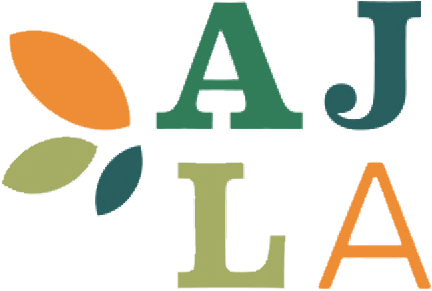
PREK 3 – GRADE 8
Social Emotional Learning
Every aspect of AJLA’S program is designed to support children’s social and emotional growth, beginning with close and trusting relationships between teachers and students. Our classrooms are inclusive spaces where students feel accepted for who they are and comfortable taking risks that unlock their creativity and stretch them academically.
Developed at the Yale Center for Emotional Intelligence, RULER is rooted in the core belief that students can strive to be their “best selves” if they learn to:
Recognize Feelings: Identifying emotions in oneself and others.
Understand Emotions: Knowing the causes of emotions and how they influence our thoughts, actions, and decisions.
Label Feelings: Connecting an emotional experience with the specific words that describe it.
Express Emotions: Knowing how and when to display feelings, depending on who we are with and what we are doing.
Regulate Feelings: Knowing and using effective strategies to manage emotions.
Responsive Classroom (RC) is a student-centered approach to teaching and discipline that is designed to create safe, joyful, and engaging classrooms and school communities for both students and teachers. Responsive Classroom focuses on:
Engaging Academics: Learner-centered lessons are participatory, appropriately challenging, fun, and relevant, promoting curiosity, wonder, and interest.
Positive Community: A safe, predictable, joyful, and inclusive environment helps all students develop a sense of belonging and significance.
Effective Management: A calm and orderly learning environment promotes autonomy, responsibility, and high engagement in learning.
Developmentally-Responsive Teaching: All decisions for teaching and discipline are based on research and knowledge of multiple aspects of student development.
Conscious Discipline
Conscious Discipline is an evidence based, trauma informed approach to discipline based on the principles of educational neuroscience. The creator of Conscious Discipline, Dr. Becky Bailey, refers to it as a “comprehensive self-regulation program that combines social-emotional learning with discipline and guidance.” Based on the principle that children need to feel safe in order to learn, Conscious Discipline believes that caring relationships create optimal learning conditions. Teachers use a variety of techniques to make students feel safe and secure:
- Welcome and goodbye rituals
- Class meetings where emotions are discussed
- The “Conflict Resolution Time Machine”
- Problem solving strategies
- Classroom rules, routines and rituals
- Misbehavior is never viewed as “bad,” rather as a missing skill that needs to be taught
Conscious Discipline Curriculum
The Conscious Discipline curriculum also teaches students how to self-regulate when they are struggling with big emotions. Learning how to self-regulate promotes the development of executive functioning skills that are so critical for student success.
- Students learn to name their emotion out loud
- They identify what their body needs in that moment (eg, mindful breathing, squeezing a stress ball, sipping cold water or sitting with a trusted adult for a few minutes)
- Once regulated, the student is able to problem solve and think more clearly
- Educators learn that they need to be in a calm and in a less emotional brain state as well

